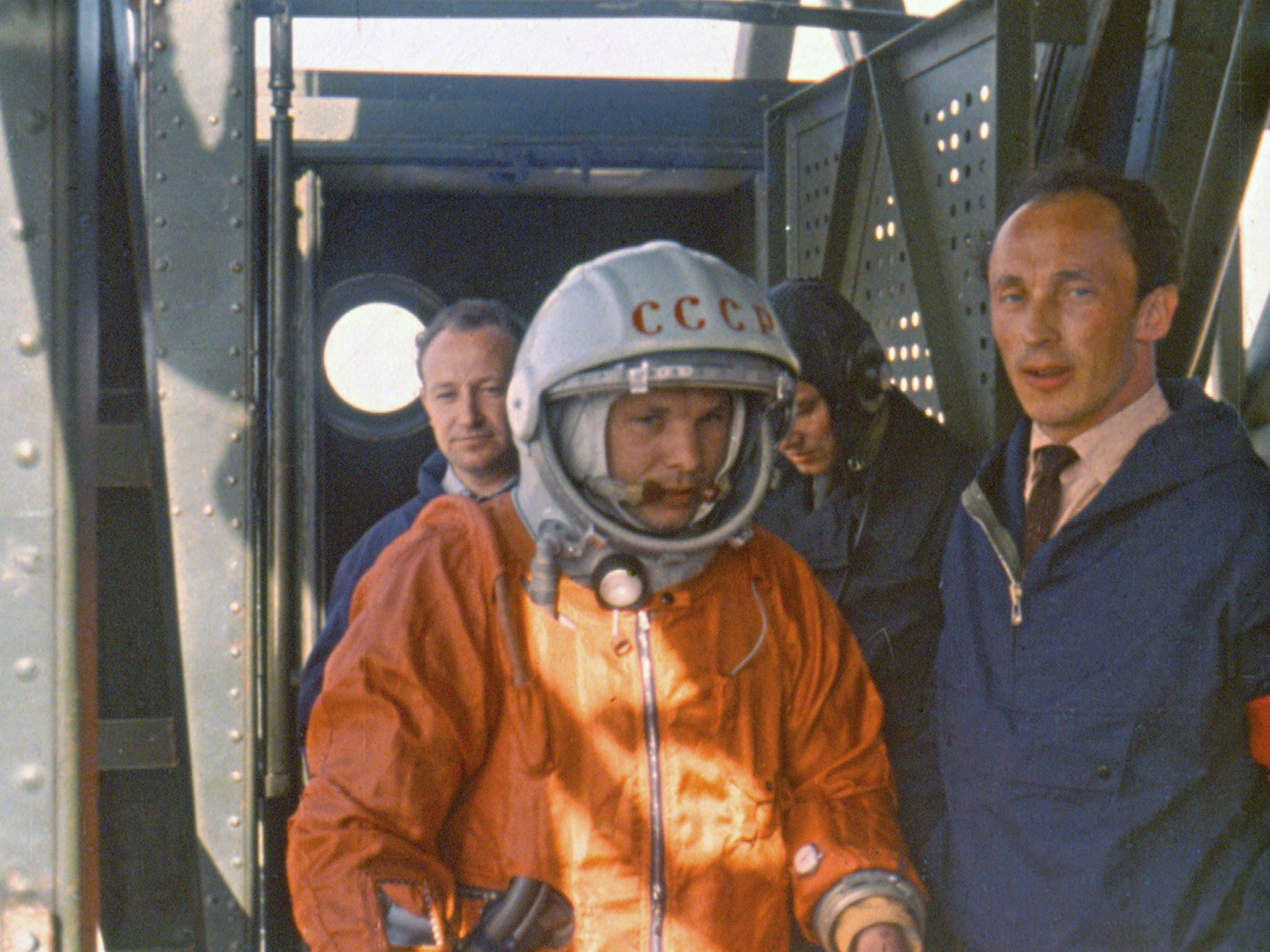Oleg Ivanovsky: Rocket scientist who helped make Yuri Gagarin the first man in space and assisted in the design of 'Sputnik'

Oleg Ivanovsky was a Soviet rocket scientist who played a central role in developing satellites at the dawn of the space age, including the first vehicle to carry a human being in orbit around the Earth.
He worked for many years at the secret space facility known as Star City, where he helped design Sputnik, which was launched on 4 October 1957. The unmanned satellite, 23in in diameter, circled the globe for three months and prompted alarm in the US that the Soviets had taken the lead in engineering, rocketry and the Cold War in general.
A month after the first Sputnik launch, the Soviets sent up Sputnik 2, this time with a dog on board. Laika died after a few hours in orbit, apparently from heat exhaustion, “but she gave much to biology,” Ivanovsky said. “We didn’t know if an animal could survive for longer than a few minutes in weightlessness. But from the data from Sputnik 2, we could see that she moved, and even ate, after the launch.”
Encouraged that a mammal could survive in space, at least for a short time, Ivanovsky took a leading role in building a capsule that could carry a Soviet cosmonaut into orbit. A 27-year-old pilot, Yuri Gagarin, was chosen to fly the spacecraft, called Vostok 1.
In 1960, an explosion at the Soviet launch pad in Kazakhstan killed 126 people, and there were other technical setbacks. Ivanovsky and other engineers estimated the chances of a successful manned flight at 50-50. Gagarin wrote a farewell letter to his wife, in case he would not return from his mission, but he blithely sang a folk song as he climbed into the cockpit on 12 April 1961. His heart rate stayed at a steady 64 beats per minute while he waited for lift-off.
Ivanovsky accompanied Gagarin to the cockpit. “There were all kinds of wild fears that a man could lose his mind in zero gravity, lose his ability to make rational decisions,” he recalled in 2011. Concerned that an agitated or deranged cosmonaut might try to fly the Vostok manually, Soviet engineers built in a system requiring Gagarin to enter a three-digit security code before he could assume the controls. The code was inside a sealed envelope, to be opened only in an emergency.
As they walked to the capsule, Ivanovsky whispered the three-digit code in Gagarin’s ear: 1-2-5. Gagarin smiled and said his flight instructor had already told him the numbers. Ivanovsky helped Gagarin on to the ladder and into the cockpit of Vostok I, patting him on the helmet and securing the hatch. But a light indicating that the hatch was properly closed failed to go on. In the midst of the countdown, Ivanovsky and two assistants hurried to replace 32 bolts by hand to secure the hatch.
“You should have seen yourself while you were working on the hatch,” an unperturbed Gagarin later told Ivanovsky. “Your face had all the colours of tarnished metal.”
Gagarin orbited once around the Earth, in a flight that lasted 108 minutes. Less than a month later, Alan Shepard became the first American in space, during a 15-minute suborbital flight. It wasn’t until 20 February 1962, when John Glenn orbited the Earth three times, that the US began to catch up with the Soviets.
Born in Moscow in 1922, and wounded in the Second World War, Ivanovsky joined a military research centre in 1947 and was part of a unit led by Sergei Korolev, the engineer considered the father of the Soviet space programme. He graduated from the Moscow Power Engineering Institute in 1953 and in 1957 became a chief designer of space vehicles at Star City, outside Moscow. He participated in unmanned space launches that examined the Moon, Mars and Venus before joining an aerospace firm in 1965. He retired in 1983.
Oleg Genrikhovich Ivanovsky, space scientist: born Moscow 18 January 1922; died 18 September 2014.
© The Washington Post
Join our commenting forum
Join thought-provoking conversations, follow other Independent readers and see their replies
Comments
Bookmark popover
Removed from bookmarks